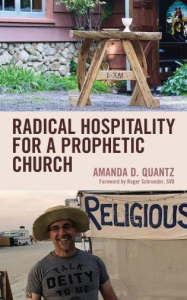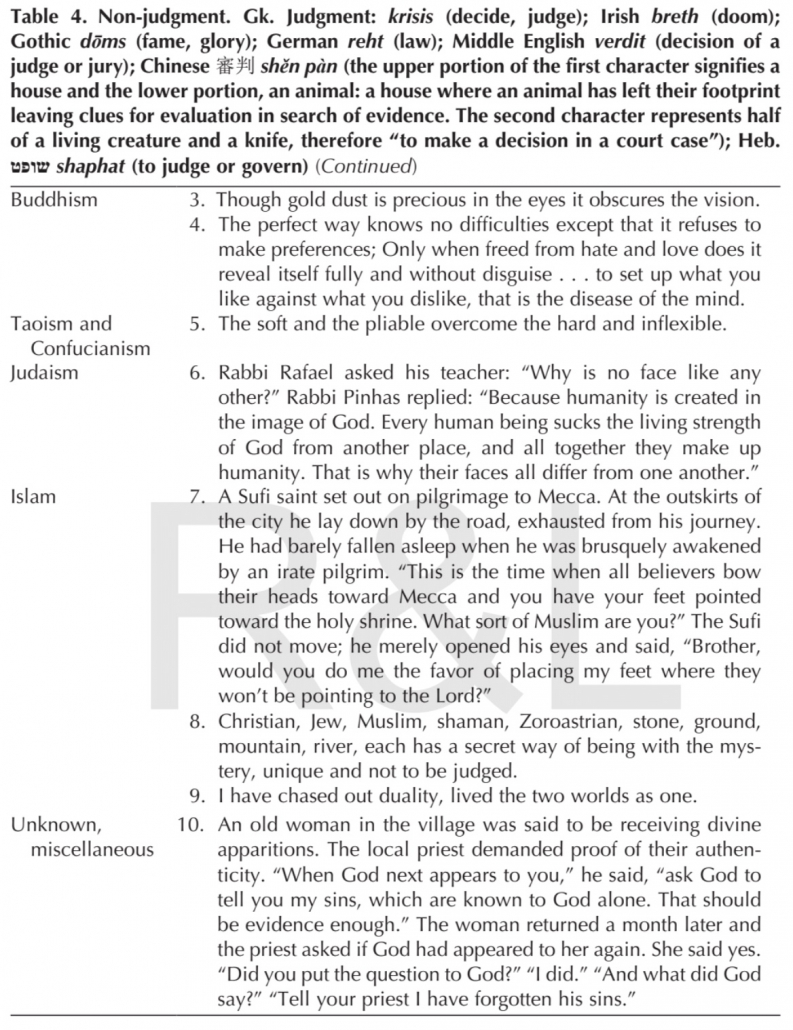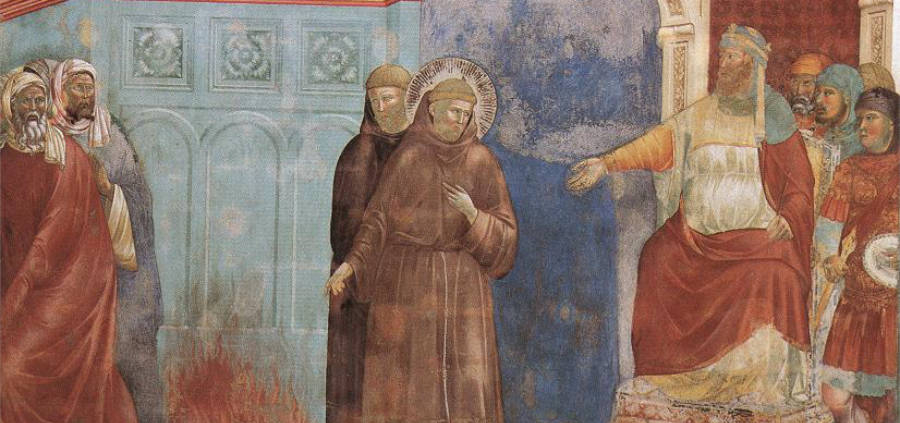Similarity-in-Difference: Amanda D. Quantz on Interspirituality, Radical Hospitality, and the Ministry of Presence
Earlier this month we had the opportunity to speak with Amanda D. Quantz, Ph.D., professor of theology at the University of Saint Mary in Leavenworth, Kansas, about her book Radical Hospitality for a Prophetic Church (Lexington Books/Fortress Academic, 2020). In his foreword to the volume, Dr. Roger Schroeder writes:
The terms “inculturation” and “contextualization” were initially associated with grounding Christian faith with the former “mission lands” of Asia, Africa, Latin America, and Oceania. Scholars and others now recognize that this necessary dynamic is not geographically bound. Rather the “West” is in just as, and perhaps more of, a need of such inculturation. The groundbreaking contribution by Amanda Quantz is her bold attempt to offer alternative avenues for understanding and engaging the opportunities for contextualizing the Christian life among the Millennial generation of North America.
Quantz’s work explores themes of interspirituality and “intertheological study,” the relationship between academic theology and pastoral practice, and the riches of the contemplative Christian tradition. Our conversation touched on these and several other aspects of her book, including her experiences of “radical hospitality” and a “ministry of presence” as a chaplain at the Gubbio Project in San Francisco and an attendee and observer at an ecumenical camp at the Burning Man festival in the Nevada desert.
Throughout her research, writing, and practice, Quantz is attuned to the work of what she calls “stretching the church’s analogical imagination”: the process of discovering, and recovering, “new metaphors, symbols, stories, and insights that make sense of the Christian faith.” We are pleased to share an excerpt from Racial Hospitality below to give readers a flavor for the book. We also include one of several tables Quantz has prepared that explore the teachings of the gospels through the wisdom of various faith traditions, as well as links to resources of interest that were referenced in our conversation—Ed. ♦
Additional Resources
Publisher website for Radical Hospitality for a Prophetic Church
The Gubbio Project
The Mercy Center
St. Columba’s Inverness
Rev. Brian Baker
The Maasai Creed
♦
“There comes a time when it is no longer important to prove one’s point, but simply to live, to surrender to God in love.”
– Thomas Merton
Interspirituality:
Similarity-in-Difference
(Excerpted from Radical Hospitality for a Prophetic Church)
Two people with different experiences who are looking through the same window perceive variations in the landscape. Each can learn about that vista through the description of the color scheme, symbolism, or contours witnessed by his or her dialogue partner. For example, let’s imagine that a Buddhist and a Christian take a trip to Palestine. Each has a unique symbolic understanding of the Jordan River. The Christian can be enriched by the description of the Buddhist who is struck by the power of a river to cleanse the body and refresh the spirit. From the Christian’s interpretation of ritualized drowning that leads to new life in Christ through baptism, the Buddhist can develop a deeper understanding of the fragility of life and greater insight into the wisdom of nonattachment. This is mutual enrichment. In using analogical language, it is just as important to recognize that “the dissimilarities between God and world are as great as the similarities” (David Tracy, The Analogical Imagination). By being attentive to the easy slippage from similarities-in-difference to likenesses, we avoid “the sterility of a relaxed univocity and a facilely affirmative harmony” (Tracy, The Analogical Imagination).
 A careful approach to interspiritual practice can yield an authentic, integral experience of what the Hindu tradition calls advaita: similarity-in-difference; unity of belief without syncretism. Mother Teresa is a good example of a Christian who understood this insight. According to Fr. Thomas Matus, “Mother Teresa was asked why the people of India love her. She said it was because she had not converted anyone but worked to serve everyone in need. Many Hindus saw her as one who had realized nonduality. She had a state funeral in India in addition to a funeral Mass.”
A careful approach to interspiritual practice can yield an authentic, integral experience of what the Hindu tradition calls advaita: similarity-in-difference; unity of belief without syncretism. Mother Teresa is a good example of a Christian who understood this insight. According to Fr. Thomas Matus, “Mother Teresa was asked why the people of India love her. She said it was because she had not converted anyone but worked to serve everyone in need. Many Hindus saw her as one who had realized nonduality. She had a state funeral in India in addition to a funeral Mass.”
The process of being transformed by one another’s insights is gradual, just as patience is required in making bread. It takes time for the yeast to metabolize the sugar in flour, which releases carbon dioxide and allows the ingredients that yield the dough to mature. The type of yeast, liquid, salt, and sugar used, as well as the time allotted for expansion, the room temperature, and the temperature at which the bread is baked, will produce food that is both unique and nourishing. Interspiritual growth is also a gradual process that requires patience and flexibility. As a habit of the soul, astute active listening cultivates the ability to respond rather than react to what one hears, and a genuine desire to be fed by the bread that is offered, regardless of whether it is the bread that was anticipated.
Raimon Panikkar, Anthony de Mello, and Wayne Teasdale maintain that we receive revelation in ways that are compatible with our belief systems. According to Panikkar, “It simply is an unwarranted overstatement to affirm that the Trinitarian concept of the Ultimate, and with it the whole of reality, is an exclusive Christian insight or revelation.” For Teilhard de Chardin, the divine mind is in all and through all, “sur-animating” people of faith according to “pluralized Providence.” This insight asserts that divine illumination has no horizon line and offers an alternative to the freeloading syncretism that fills new age bookstores and relativizes religious traditions. Rory McEntee and Adam Bucko reflect on the “New Age pitfalls of walking a shallow spiritual path that comforts rather than transforms the ego.” The goal of interspiritual living is to discover God beyond our known vistas: to learn about who and how God is for others, not to pick and choose what makes us feel good. This approach does not flatten the contours of Christianity but recognizes that Christian teachings refract differently through the prism of each tradition (and vice versa). ♦
Prophetic Hospitality:
Engaging Global Wisdom
(Multireligious Teachings in Dialogue with the Gospels)






Leave a Reply
Want to join the discussion?Feel free to contribute!